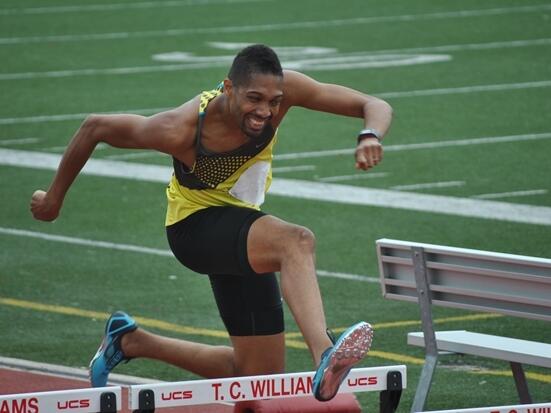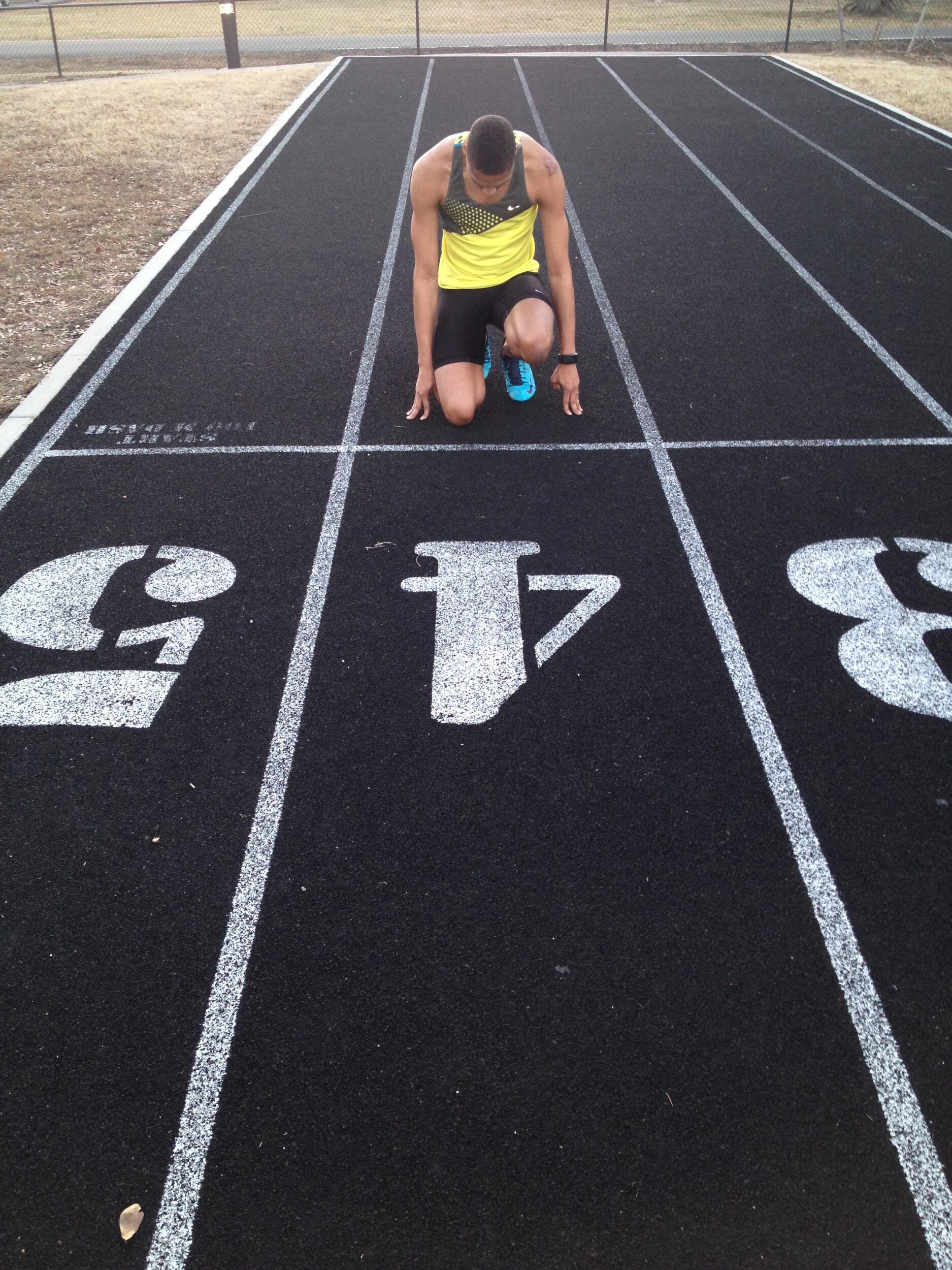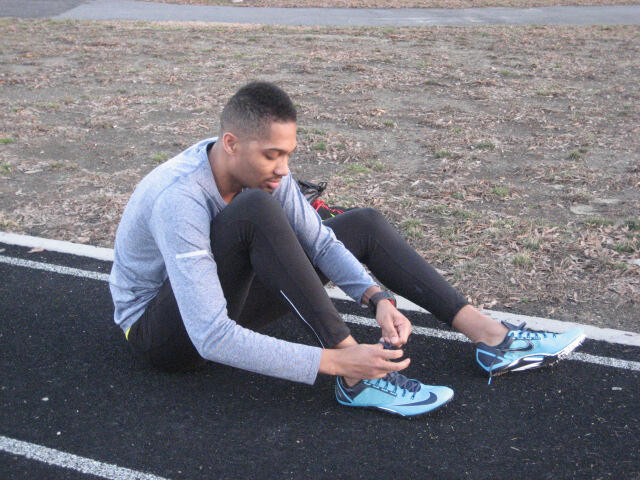
June 10, 2016
Medical student hurdling toward Olympic Games qualifying
Share this story
Many athletes have gone to medical school before or after the Olympic Games. Very few, however, try to pursue the two simultaneously.
Mallory Abney, a 400-meter hurdler, has kept up world-class training during his time in Virginia Commonwealth University’s School of Medicine. Abney, a member of the Class of 2017, will begin his fourth year of study later this summer — right around the time he hopes to be competing at the Olympic Games in Brazil.
But first Abney has got to get to the Olympic Team Trials. A few months ago, he would have automatically qualified as one of the top hurdlers in the country. But several athletes have since beat his qualifying time, pushing him down a notch and necessitating a faster finish before the end of June. He hopes to accomplish that this weekend in Maryland; otherwise, he’s got another chance later in the month.
While most of his competitors are training full time, Abney is tackling an acting internship in emergency medicine at VCU Health. “It’s been challenging,” he said. “It’s hard to get the rest you need. But it’s helped keep me focused and organized.”
“Mallory is tough,” said Leslie Young, his coach. “As hard as he works towards his medical degree, that’s how hard he works at his hurdling.”

On a typical day, Abney gets up around 4:45 a.m. and is out the door for an endurance run by 5:15. He spends the day on VCU’s MCV Campus, either in school or the hospital, then heads to Virginia State University for a track workout followed by a weightlifting session. He goes home to his (“very patient”) wife around 7 p.m., eats dinner, studies until almost midnight, and catches a few hours of sleep before starting it all over again.
It is a grueling schedule, but Abney says he appreciates the support he has gotten from medical faculty, staff and other students. Some classmates have gone to watch him run or accompanied him to training sessions. They will be rooting for him to qualify for the games, even though Abney admits he is an underdog.
“People call 400-meter hurdles the toughest race in track,” he said. “It requires you to train in a few different disciplines. It’s a sprint race, so you need speed. But it’s the longest sprint race, a full lap around the track, so you need stamina. And then there are these 10 hurdles in the middle of it all, so you need flexibility.”
The Olympic Games were not part of his plans a decade ago.
After a solid, but not spectacular, track career at the College of William and Mary, Abney thought he would just be a casual runner. He worked as a medical scribe at Memorial Regional Medical Center in Mechanicsville, Virginia, planning to take the MCATs and apply to medical schools.
But a chance encounter with a former rival reignited the desire to compete and he eventually re-entered serious training. After a coach told him his hurdling form was ineffective, Abney refined his technique and found his times dropping significantly, propelling him to national and international levels.
The MCATs were put aside, as Abney continued working as a scribe and competing. But in 2011, just after he’d qualified for the 2012 Olympic Team Trials, he was sidelined by injury. Rather than sitting around during recuperation, he enrolled in the Premedical Graduate Certificate Program on the MCV Campus as a refresher and finally took the MCATs.
Abney was accepted to VCU’s School of Medicine and began in 2013.
Now 30, Abney realizes 2016 may be his last shot at the Olympics. If he makes the team, he plans to postpone applying for residencies for a year, since the September application deadline would be too tight. If he doesn’t make it — “the easiest road, but the saddest” — he’ll continue his medical training.
Both are really good options, Abney admitted. “I’d be ecstatic to make the team. But whatever happens, I’m just happy I stuck with it.”

Subscribe to VCU News
Subscribe to VCU News at newsletter.vcu.edu and receive a selection of stories, videos, photos, news clips and event listings in your inbox.













